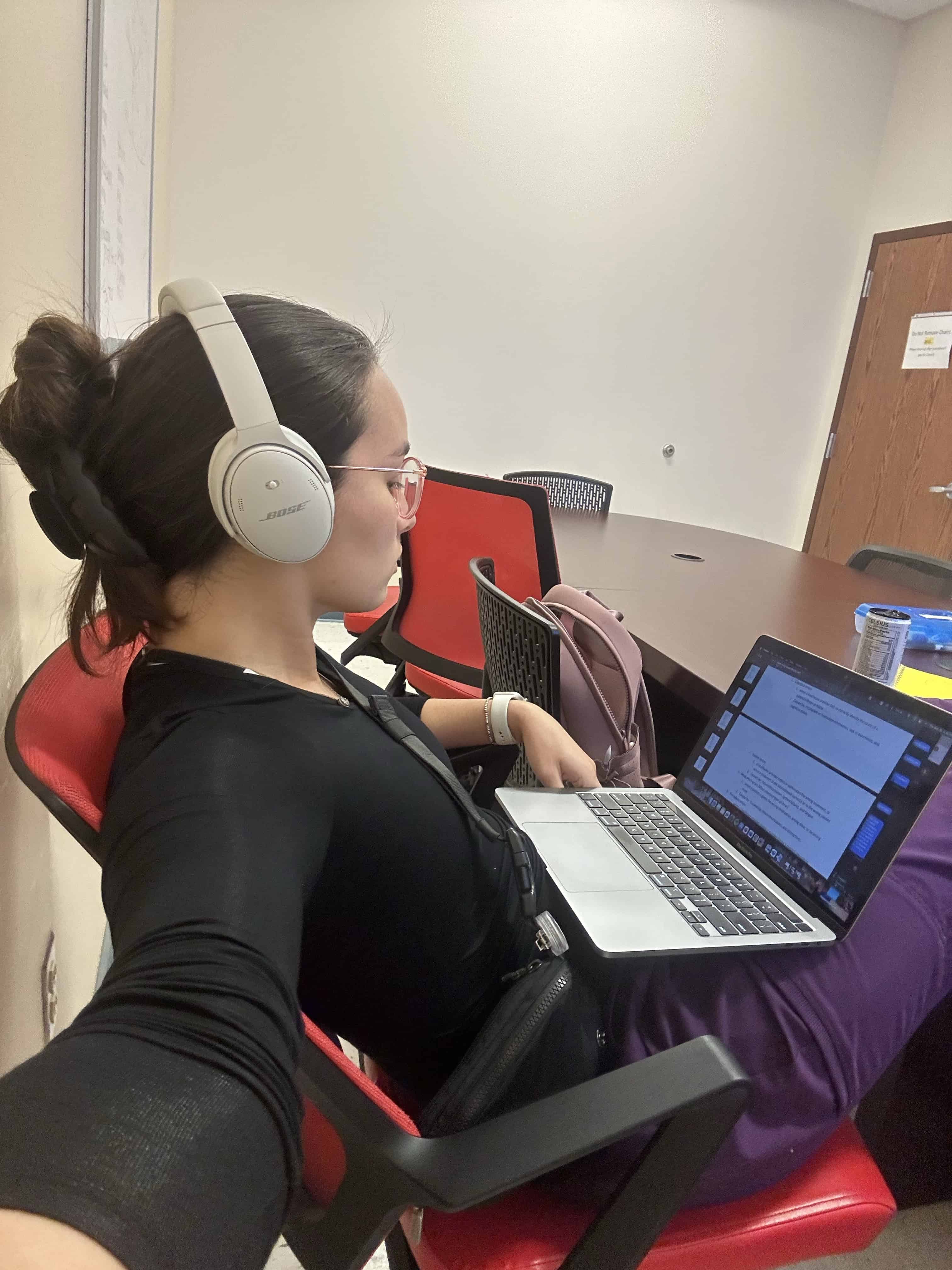7 Things To Look For When Choosing A Communication Degree

Wanna pursue a communication degree but don’t know what to look for in a good communication program? I got you!
I’ll share some signs of a good communication program and what to consider when it’s time to apply!
7 Things To Look For When Choosing A Communication Degree
1. Internships/Co-op Programs

Communication is an experience-heavy field, which means that having a degree will only get you so far if you don’t have work experience.
I’ve seen a HUGE difference in careers between past comms majors who did and didn’t have internships during their degrees.
The #1 recommendation I have for any aspiring comms majors is to find a program that has a built-in co-op or internship program.
Here are some EXTRA good signs of a strong internship/co-op program:
- The school requires employers to pay students during their internships
- The program has multiple internship terms for students to complete throughout their degree (preferably 2-4 terms)
- The school provides an internal database of employers
2. Specializations, Minors, and Double Majors

Communication is such a broad field that it can be helpful to find a program that allows students to specialize in a communication stream or to combine communication with another program.
Communication programs usually allow students to specialize in a communication stream to enhance their knowledge in an area of focus in comms.
Some common communications streams offered are:
- Organizational and Strategic Communication
- Political Communication
- Media and Entertainment Industries
- Advertising and Marketing Communication
Learning if a prospective school offers minors or double majors can help if you want to combine your interest in communication with another subject.
Some common program combinations with communication are:
- Communication and Political Science
- Communication and Sociology
- Communication and Psychology
- Communication and English Literature
3. Communication Student Association

Aside from the academic things to look for in a comms program, it’s also super important to look at the social opportunities for comms majors.
Check if your prospective school(s) have an active club or association for communication students. What events do they run? Do they have an orientation week for comms students?
Building a community is really important for a successful and fulfilling experience in communication.
And make sure to check if the school offers any other clubs or associations that interest you!
4. Travel Opportunities

I may be a little biased with this one since I studied abroad during my studies, BUT if a prospective school offers travel opportunities like exchange programs or international conferences, it could become a big part of having a fulfilling academic experience.
Academic travel opportunities during your studies can help guide you in your interests and future career.
And unlike being in a classroom, you’ll get the chance to bring your studies into the real world.
Travel opportunities weren’t something I initially thought of when I was picking a communication program, but once I started participating in these opportunities, it became a big part of my success as a comms major.
5. Location, location, location

A university/college’s location is usually overlooked but in my opinion, it’s one of the most important factors to consider when choosing the best school for you.
You’re not only choosing the school you’ll be attending for multiple years but also the city you’ll be living in.
And in many cases, even after graduation, students stay in their school’s city since they’ve already found a job or built a community there.
Make sure that you research the city (and tour the city if possible) and make sure that it has good job opportunities, safe neighbourhoods, and other non-negotiables you may have.
6. Alumni Career Paths

A great way to figure out what possible future could await you in a school’s communication program is by looking at its past alumni and their career paths.
Do many of them have careers in fields that interest you?
What did these alumni achieve during their studies and after they graduated?
Do a quick web search or look on LinkedIn to find how other graduates from that program pursued their future careers.
7. Funding and Scholarship Opportunities

Funding can be a big factor that sways students from one school to another. Check beforehand what kind of funding opportunities are offered by your prospective school(s).
It’s an extra good sign if the school has scholarships specifically for communication students.
What communication programs do you want to apply for?
Hopefully this post gave you some guidance on what’s important to look for when starting your search for communication programs. Comment below what universities or colleges you’re hoping to apply to!
